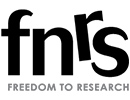A
25.04.2019
Before I deal with the question of how to connect internal and external evolutionary mechanisms, I want to show that evolutionary thinking is already emerging in current neuroeconomics. This relates to the strand of research that builds on neural networks to explain choice. The standard approach in neuroeconomics starts out from the idea of a... READ MORE







